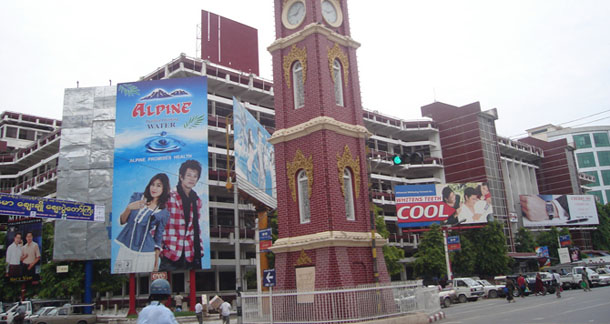RANGOON — Burma’s Ministry of Immigration and Population has begun to investigate the status of immigrants in Mandalay city in preparation for taking further action, according to Deputy Minister Kyaw Kyaw Win.
At a meeting of the Union Parliament on Monday, Kyaw Kyaw Win explained to lawmakers about the ministry’s national projects and its plan to tackle illegal immigrants in the ancient city.
On Feb. 15, Khin Waing Kyi, a member of the Upper House representing Rangoon Division, submitted an proposal related to illegal immigrants who cannot speak Burmese in Mandalay and asked the Union Parliament to verify their cases for further action.
In response, Kyaw Kyaw Win said that the ministry is in the process of examining the documents of residents suspected of possessing fake national identity cards. Those found to be non-citizens will have their papers revoked, and immigration officials who issued the IDs will also be charged, he said.
“The ministry is well aware of the need to systematically check to prevent people who cannot speak Burmese from entering and living in Mandalay,” said the deputy minister.
“If any irregularities are found, both the responsible staff and illegal immigrants will be charged. This process will be more effective if local authorities and residents cooperate with the ministry, so we ask for their cooperation a national duty,” he added.
Writer Hsu Hnget, a Mandalay resident, told The Irrawaddy that there are many illegal immigrants who can’t speak Burmese in his city, most of them Chinese. They began arriving in large numbers after 1990 and many previously Burmese-owned houses, buildings and businesses are now in their hands, he said.
“I’m sure there are many illegals living in Mandalay,” said Hsu Hnget. “After 1990, a lot of them came here—some as a result of the peace process, and some through connections with local authorities. They are Chinese and mostly from Yunnan Province.”
In the 1990s, Burma’s then military junta reached ceasefire agreements with a number of ethnic armed groups based along the Sino-Burmese border, including the ethnic Chinese Kokang and other groups with Chinese leaders.
Tin Tin Mar, a member of Mandalay Division Assembly from Chanayethazan Township, said that it is important to look at individual cases thoroughly while taking actions against illegal immigration.
“In verifying immigrants, the process will be quick enough if the ministry works together with local authorities,” said Tin Tin Mar. “They just need to do it thoroughly.”
According to Kyaw Kyaw Win, the verification process for illegal immigrants will cover the whole country and the ministry is also implementing a Permanent Residency system for foreigners.

















